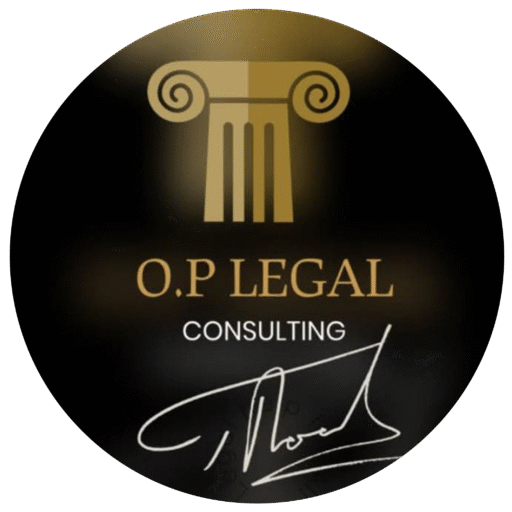Understanding NDA (Non-Diclosure Agreement) Breaches and Litigation Risks for Trade Secret Violations
October 2, 2025How to Spot Potential Litigation Triggers in Your Business Operations
October 2, 20251. Understand NESREA and Its Core
RequirementsAs a business owner or manager in Nigeria, staying compliant with the National Environmental Standards and Regulations Enforcement Agency (NESREA) Act is not just a legal duty, it’s a smart way to shield your operations from costly disputes. NESREA sets clear rules on pollution control, waste management, and environmental protection to keep our air, water, and land safe for everyone. Think of it like a roadmap: follow it closely, and you avoid detours into courtrooms. In plain terms, compliance means getting permits for your activities, monitoring emissions, and reporting any spills or hazards right away. Skipping these steps opens the door to fines, shutdowns, or even lawsuits from affected communities or watchdogs. To start your risk assessment, list out your daily operations and match them against NESREA’s guidelines—it’s a simple checklist that can save you headaches down the line.
2. Spot Potential Litigation Triggers in Your Operations
Litigation risks often hide in plain sight, like unpermitted discharges or ignored noise complaints, but spotting them early is your first line of defense under NESREA. Ask yourself: Are your factory emissions staying below the legal limits? Do you have records of waste disposal that meet the agency’s standards? Non-compliance here can trigger claims from neighbors claiming health issues or environmental groups pushing for damages. In simple language, think of these as red flags—poor record-keeping or outdated equipment might not seem urgent, but they fuel lawsuits that drag on for years. A basic audit of your site, reviewing past reports and employee practices, helps pinpoint these vulnerabilities. Remember, Nigerian courts take NESREA breaches seriously, often awarding compensation that hits your bottom line hard, so proactive checks keep you one step ahead.
3. Step-by-Step Guide to Conducting a Risk Assessment
Carrying out an environmental litigation risk assessment for NESREA compliance doesn’t require a law degree, just a methodical approach anyone can follow. Start by mapping your business activities against NESREA’s regulations, like the ones on hazardous substances or biodiversity protection. Next, gather evidence: collect permits, inspection logs, and training records for your team. Rate each area on a scale from low to high risk based on how likely a breach could lead to a lawsuit. For instance, if your storage tanks leak often, that’s a high-risk item needing immediate fixes. Wrap it up with a written report outlining fixes, timelines, and who handles what. This straightforward process not only meets legal expectations but also builds a strong defense if challenges arise, courts favor companies that show they tried their best to comply.
4. Key Compliance Strategies to Minimize Legal Exposure
To cut down on litigation risks tied to NESREA, focus on practical strategies that embed compliance into your daily routine. First off, train your staff regularly on handling spills or reporting issues, and knowledge gaps lead to accidents that spark suits. Invest in tech like monitoring sensors for air and water quality; it’s cheaper than fighting claims later. Partner with certified waste handlers to ensure your disposals are spot-on and keep a public log of your efforts to build community trust. In easy terms, these aren’t extras—they’re essentials that turn potential pitfalls into strengths. Nigerian law rewards good faith efforts, so document everything meticulously; it could sway a judge in your favor during disputes. By weaving these habits in, you not only dodge fines but also avoid the stress of drawn-out legal battles.
5. The True Cost of Ignoring NESREA Compliance Risks
Overlooking NESREA compliance can turn a minor oversight into a financial nightmare through litigation, so understanding the stakes is crucial for any prudent operator. Fines start at hundreds of thousands of naira per violation, but that’s just the tip—legal fees, lost productivity from shutdowns, and damage awards can multiply costs exponentially. A single pollution lawsuit might force you to pay for cleanups, medical checks for locals, and even business halts while experts investigate. In plain speak, it’s like a snowball rolling downhill—small at first, then overwhelming. Real cases in Nigeria show companies paying millions and facing reputational hits that scare off partners. A solid risk assessment flips this script, letting you budget for prevention instead of scrambling for cures when the bill arrives.
6. Building a Strong Defense with Documentation and Audits
When litigation knocks due to NESREA issues, your best armor is rock-solid documentation and regular audits—tools that prove you’re not cutting corners. Keep every permit, test result, and fix-it note in an organized file, dated and signed, so you can pull them out fast if needed. Schedule yearly audits with independent experts to catch slips before they escalate. Simply put, this creates a paper trail showing your commitment, which Nigerian courts view as evidence of due diligence. If a claim hits, hand over these records to demonstrate compliance efforts; it often leads to quicker settlements or dismissals. Don’t wait for trouble—treat audits like routine checkups to keep your operations healthy and lawsuit-proof.
7. Moving Forward: Professional Guidance for Lasting Peace of Mind
Wrapping up your NESREA compliance journey with a risk assessment sets you up for smoother sailing, but remember, this isn’t one-and-done—review it annually as laws evolve. Engage a local environmental lawyer or consultant for tailored advice; their expertise spots nuances you might miss. In straightforward terms, think of it as insurance, which may mean a small upfront investment that pays off big by keeping disputes at bay. Stay vigilant, comply diligently, and your business thrives without the shadow of litigation.

